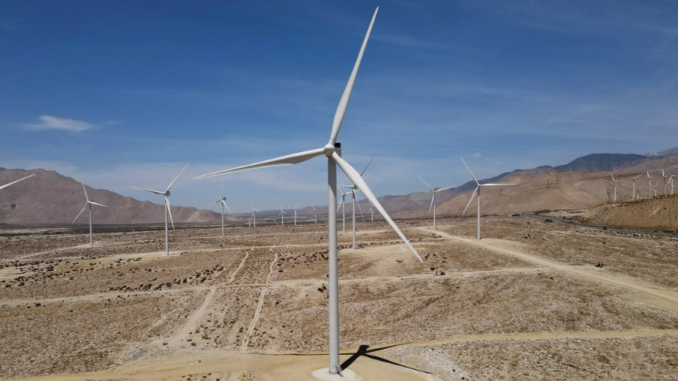
Clean energy stocks are out of vogue, as higher interest rates and lagging efforts to combat climate change dog the sector. Those obstacles might not go away anytime soon.
The iShares Global Clean Energy exchange-traded fund, which tracks the performance of sectors from renewable electricity to semiconductors to solar energy, has slumped 27% this year, underperforming the MSCI All-Country World index’s 15% gain. The fund is on pace for its third straight annual loss.
Plug Power shares have slipped 63% this year, Enphase Energy shares have plunged 60%, SolarEdge Technologies shares have declined 71% and NextEra Energy shares have slid 29%.
The Biden administration’s sweeping Inflation Reduction Act promised $750 billion in funding for health and climate projects. Since its passage last year, more than 270 new clean energy projects have been announced, with $132 billion in private investments, according to a Bank of America report released in August.
Yet clean energy stocks haven’t recovered, despite hopes that an influx of US government spending on climate solutions would help revive the sector.
The culprit behind clean energy stocks’ poor returns? Interest rates are perched at a 22-year high after the Federal Reserve began its aggressive rate hiking campaign last March, driving up borrowing costs for growing companies trying to load up on capital. Supply chain snarls have further complicated matters.
Money managers say that while some clients are interested in owning shares of sustainability-driven companies, those challenges make it difficult to simultaneously maximize portfolio returns.
Expectations that rates will remain elevated at least through the beginning of 2024 could keep the lid on those firms’ earnings. Clean energy names tend to trade on their future earnings potential, since they’re part of a fledgling sector. But there are concerns that these stocks are pricey relative to their current balance sheets, despite their steep decline this year.
“There are some really rosy assumptions being baked into the share prices” of clean energy companies, said Todd Jones, chief investment officer at Gratus Capital.
Jean Rosenbaum, senior portfolio manager at GYL Financial Synergies, says her firm has pared back its clean energy exposure in recent months on concerns about weakening corporate earnings due to elevated rates. Clean energy investments make up under 5% of her firm’s assets.



